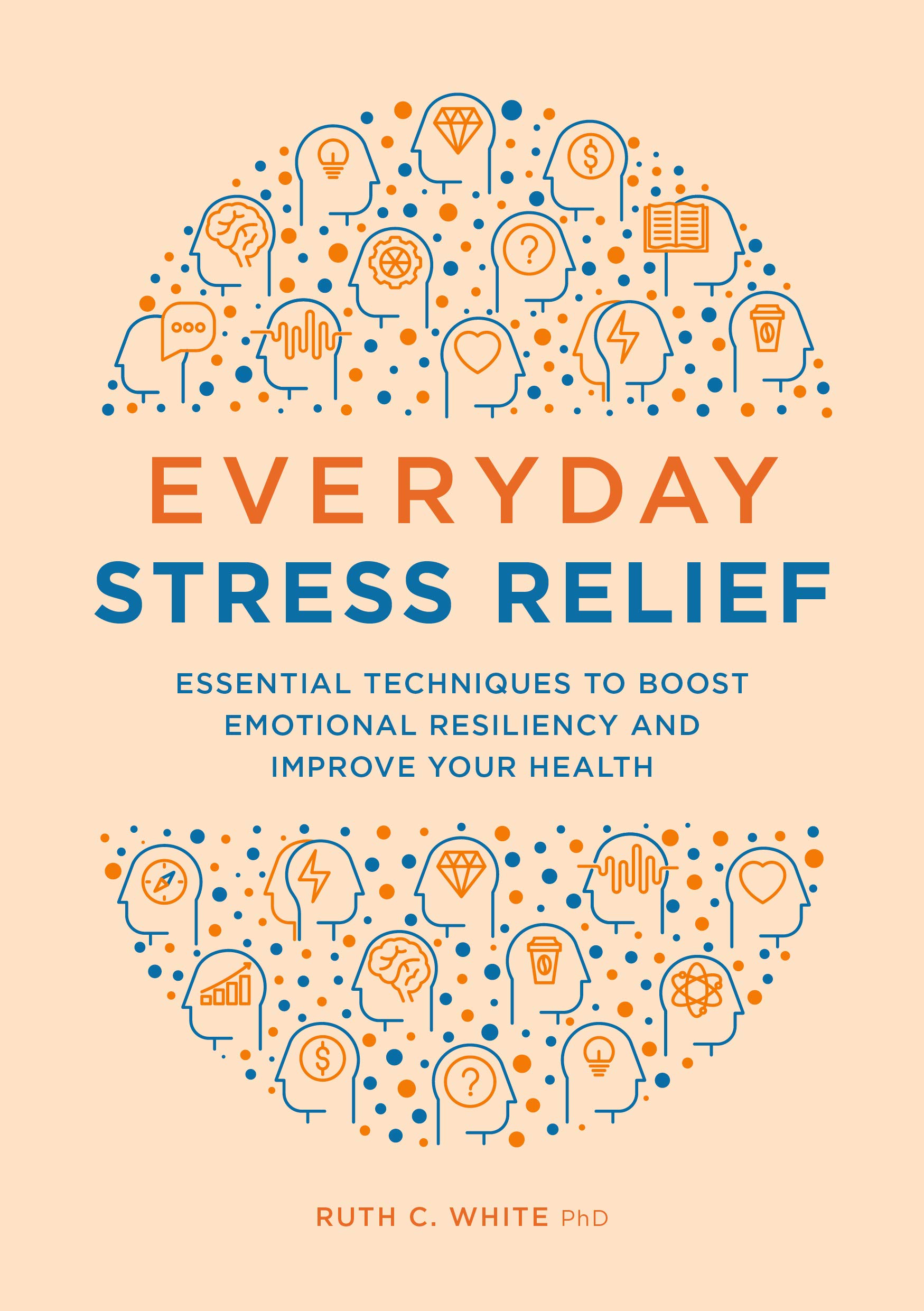The Best Stress Relief Methods For Studying At Exam Time*

Don’t let the pressure of the exam period affect your performance. There are lots of ways to relieve study stress and boost your learning potential…
1. Breathe and stretch as you study
Breathing techniques are one of the quickest and easiest ways to relieve tension in the body and calm the mind. By taking deliberately deep, slow breaths the body undergoes a relaxation response: the heart rate slows, muscles relax and blood pressure drops. Try five minutes of abdominal breathing (focusing on filling the air in the stomach area) or 7:7:7 breathing: breathe in for a count of seven, hold your breath for seven seconds, breath out for seven seconds.
Stretching the body will also help relieve muscle tension, increase circulation and focus your brain. Enrol in a gentle yoga class for a guided stretching session, then practise the techniques at home. It’s important to take a break from sitting at your desk. Not only will it keep you relaxed and alert, it’ll help you sleep better, too – all of which leads to more effective studying and exam performance.
2. Become a pro at time management
To get the most out of your study time and make it as stress-free as possible, creating a study timetable is essential. Planning your studying a week or month in advance is ideal, meaning you’ll know exactly what you need to do, and that you’ll have the time to cover everything you need. But even if you have less time than you’d like, creating a timetable will help make sure you fit the most important elements into the period of time you have left. Make sure you factor in breaks and relaxing activities too, and be sure to mix it up so you don’t spend all day cramming the same subject – you’ll just get bored!
If you’re a bit disorganised or struggle to get going in the mornings (you’re a student, it’s expected) there are some great study apps that can help you take control of your schedule. The Pomodoro Focus Booster app allows you to choose a task to complete, and will prompt you to take timed breaks at intervals of your choosing. It’s good for avoiding distractions and keeping study time to shorter, more effective bursts. Another time management app, 30/30, will let you set up a list of study tasks with a time scale for each, and tell you when it’s time to move on to the next item.
3. Cut out distractions
Social media sites such as Facebook or Twitter are not only hugely distracting when you’re supposed to be working, but studies have shown they can make us feel stressed or experience ‘FOMO’ (fear of missing out) if we spend too long browsing them. Completely avoiding social media, if only for a couple of hours, will aid your focus and prevent you from getting lost in any negative thought patterns. Besides, why would you want to look at photographs of your friends enjoying their free time while you are meant to be working?
If you’re finding it especially hard to switch off, delete any social media apps from your phone and consider installing a website blocker onto your computer so there’s no way you can access the sites that distract you the most. The free Self Control app for Macs allows you to block websites on your machine for a set period of time. Freedom does the same job but for PCs. There is a small charge of $2.50 per month for this, or you can try the week-long free trial. Have a digital detox and you’ll be sure to have a positive study session with less procrastination!
4. Take breaks outside
It can be tempting to hibernate in your university accommodation or even study from the comfort of your bed. However, research shows that simply being outside lowers stress levels, even after just five minutes in the open air. Find your nearest green space next time you need to take a study break and you’ll immediately feel less anxious and more clear-headed. The study conducted by the journal of Landscape and Urban Planning was held in Scotland – which is not the sunniest country in the world – so there’s no excuse not to get outside wherever you are!
5. Get your heart pumping
Not only will regular exercise relieve stress but it can also improve concentration and mental awareness – two things that are vital while studying for your degree. Tiring yourself out with exercise will also improve your sleep, which further reduces stress levels. You don’t need to go all-out to get the stress-relieving benefits of exercise, though, as psychologists have shown a 10-minute walk can be as effective as 45 minutes of rigorous exercise. Even better, it doesn’t really matter what form of exercise you choose as anything will be beneficial. Getting outside for some cardio would be a great way to boost your mood, but equally a yoga break will help relax the body and mind for your next study session.
6. Talk it out
When you’re feeling pent up and anxious about your studies and exams, the pressure can feel overwhelming. A really great way to get a handle on the situation is to talk to your peers about what you are going through. You might find they are feeling exactly the same way and, as they say, a problem shared is a problem halved! If it’s all getting too much at your desk, take time out to call a good friend or parent and talk out your study stresses. You’ll feel so much better just for voicing your worries and will come off the phone with newfound focus and determination.
There’s no replacement for face-to-face human contact, though. If studying alone is turning you into a ball of stress, find a friend to be your study buddy or join a university study group. Working with others in close proximity should boost your mood and make you focus on the task at hand, and you’ll be less likely to get distracted by social media, daydreaming or worrying about upcoming exams and deadlines.
7. Make bedtime a priority
This one isn’t going to be easy since you are a student and all, but going to bed at roughly the same time every night is a fail-safe way to improve the quality of your sleep. Having a bedtime routine is also advised so that the body knows it is about to go to sleep and will relax in preparation. Turn off all electronic devices at least half an hour before sleeping and don’t try to study from your bed, as you will begin to associate it with negative emotions such as stress. There are also a few studies that advocate the benefits of napping during the day. If you need a quick recharge, try and grab a quick 20-minute power nap – for some people sleeping longer than that makes waking up difficult and can make them feel groggy. So you might want to keep it to just that length of time – but it depends on what works for you.
8. Get your study snacks right
Studies have proven without a doubt that certain foods can help relieve stress and anxiety. If you are feeling overwhelmed while staring at your revision notes, consuming food and drinks that are high in sugar or caffeine will only heighten your stress. Instead, make sure you are putting healthy food into your body, which will help you stay calm and hopefully boost your brainpower, too. Some of the best (and tastiest) mood-boosting snacks include blueberries, dark chocolate and pistachio nuts. Pumpkin and sunflower seeds contain high levels of magnesium, which is known to regulate emotions. Of course eating too much of anything will make you feel lethargic and off-form – so eat in moderation. Those who drink black and green tea have also been shown to produce lower levels of the stress hormone cortisol after performing a stressful task, so put the kettle on when it all gets too much!
*This artcle was wrote by Helen Scarr and published in https://www.student.com/articles/the-best-stress-relief-methods-for-studying

